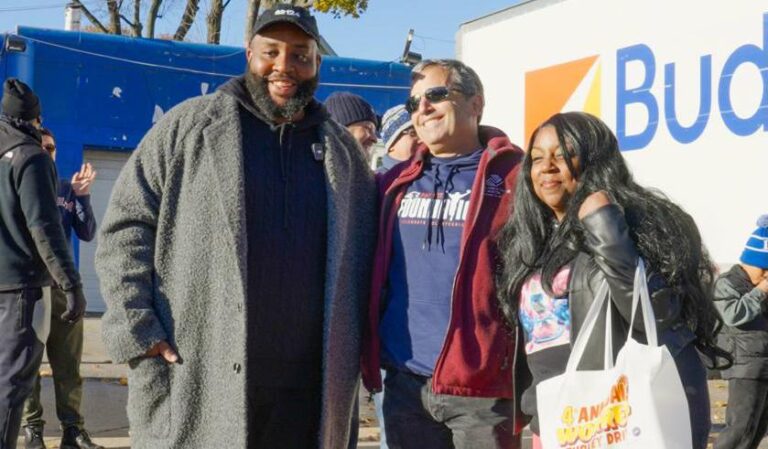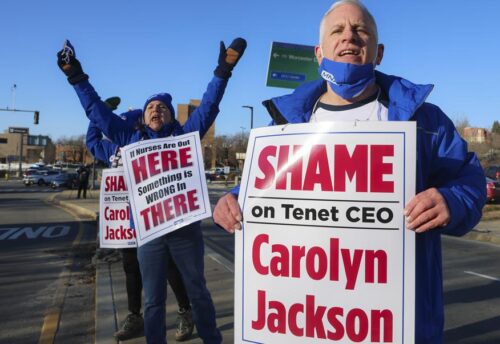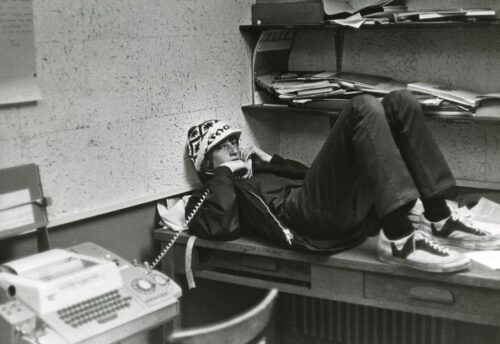Can Mayor Michelle Wu count on the Black vote?
Not yet.
That’s what I’ll be watching closely as the Boston mayoral race kicks into high gear with Josh Kraft entering the race.
My sense, after months of conversations with Black leaders, is that the Black vote is up for grabs — and that as Black voters go, so goes the election.
From Mattapan to Roxbury, there’s a recurring strain of unhappiness. Wu has not only failed to deliver on her promises to stabilize rents and improve schools, but they feel that the city is not on the right track with rising property taxes, an influx of bike lanes, and a controversial renovation of White Stadium.
This disenchantment with Wu is perhaps why Kraft, the former longtime leader of the Boys & Clubs of Boston and board chair of the Urban League of Eastern Massachusetts, thinks he has a shot at winning. While he’s the son of a billionaire — dad is New England Patriots owner Robert Kraft — the younger Kraft has spent three decades working to uplift youth in Boston and Chelsea’s Black and Latino communities. There’s even a teen center in Mattapan named after him!
But this doesn’t mean unhappy Black voters will automatically flock to Kraft. He will have to earn their vote. Which is why he has spent the better part of a year on a listening tour, meeting with hundreds of civic leaders, small business owners, politicians (current and former), and voters — many in communities of color.
Jacquetta Van Zandt, a Roxbury resident and host of the “Politics and Prosecco’’ podcast, said she’s upset with the Wu administration’s handling of residential property taxes, the persistent homelessness problem at Mass. and Cass, and the city’s decision to spend $100 million redeveloping the city-owned White Stadium for a new professional women’s soccer team.
“There are some missteps that the Wu administration has done in terms of alienating and not collaborating with the Black community,’’ said Van Zandt, who met Kraft for the first time last year and described him as “respected’’ in Black circles.
Van Zandt, who voted for City Councilor Annissa Essaibi George in the 2021 mayoral race, hasn’t decided who she will vote for this time but added, “If the election were held today, I would not vote for Michelle.’’
Chanda Smart, who lives in Roxbury and runs her own real estate development and brokerage firm, voted for Wu in 2021 — first in the preliminary and then in the final. But Smart is not sure she’s going to back Wu again. She has also met with Kraft and feels heard. Smart believes he grasps not only how development can boost the local economy but also what it will take to get projects moving along.
“Democracy is alive, and everyone needs to fight for their seat,’’ she said. “At this point, we are beyond identity and party politics. It’s time for action to match policies that reflect this moment.’’
And while every vote matters, votes in the Black community could prove decisive in a close race.
Here’s why: In November 2021, Wu captured 64 percent of Boston’s electorate to become the first woman and person of color elected mayor. In the general election, she won all the majority-minority neighborhoods in the middle of the city that had gone to one of the three Black candidates in the six-way preliminary election, according to an analysis by the MassInc Polling Group.
The only two wards she didn’t win in the city encompass South Boston.
This time around, let’s assume Wu hangs onto her loyal progressive base, voters who support her to fulfill her policy agenda that includes rent stabilization, a Green New Deal, and fare-free transit. Then figure Kraft picks up more conservative white voters who largely backed Essaibi George in the 2021 runoff, and before her Mayor Marty Walsh in 2013 and 2017.
In November 2021, about 144,000 people voted in the mayor’s race, and Wu won by nearly 41,000 votes. That means roughly 22,000 votes swinging the other way is the difference between winning and losing. And that is the approximate size of the Black electorate in Boston.
“More than ever, this year’s mayoral election is going to come down to Black voters,’’ observed state Representative Christopher Worrell, a Dorchester Democrat, who is Black. “Voters are going to be looking for the candidate who is consistently in the community and delivering tangible results. All too often, my community sees politicians who only show up when they are looking for votes during the campaign. Our next mayor must demonstrate a firm commitment to supporting residents of Dorchester, Roxbury, and Mattapan.’’
I expect Kraft and Wu to start courting Black leaders and elected officials for endorsements. Keep a close eye on who endorses early on and who chooses to hold out.
Worrell is keeping an open mind. Wu endorsed him on the front steps of his parents’ home in Dorchester in 2022 when he first ran for state representative. Kraft wrote a check and showed up last November at a Thanksgiving turkey drive he and his brother Brian Worrell, a city councilor, sponsor every year.
Like other groups, Black voters are not a monolith. Homeowners might feel differently from renters, older voters care about issues that young people do not. And the race is just beginning.
Nia Grace, a Roxbury resident and restaurateur, said she’s well aware of criticisms of Wu coming from the Black community, but her experience is that Wu’s administration has been responsive whether it’s addressing concerns about bike lanes to providing grants to help small businesses open storefronts.
“Any administration is going to have critics,’’ Grace said. “No administration is infallible, and I think that the Wu administration has had a lot more good efforts than not.’’
Grace knows Wu. She’s met Kraft before too — his daughter is a singer and performs at Grace’s jazz club in the Seaport District. Still, Grace is not ready to share who she will cast a ballot for come November.
“I am a supporter of the Wu administration as it is currently,’’ Grace said. “The Wu administration is what I know. I don’t know a Josh Kraft administration.’’
We’ll know soon enough what a Kraft candidacy looks like — and whether Boston wants a change in City Hall.
Shirley Leung is a Business columnist and host of the Globe Opinion podcast “Say More with Shirley Leung.’’


